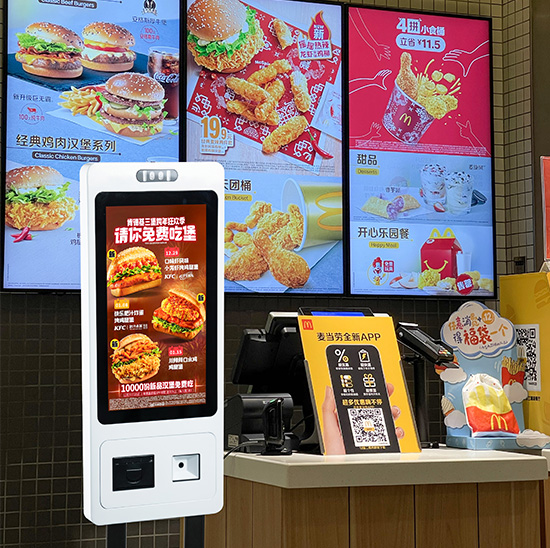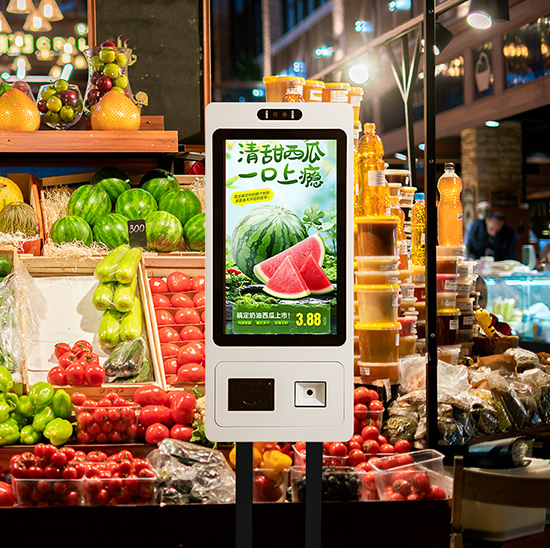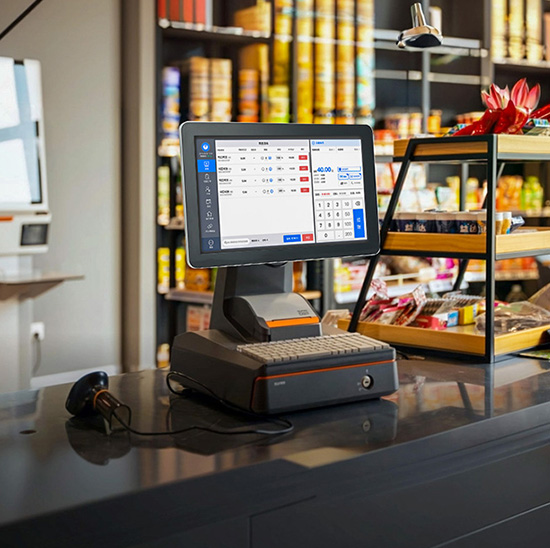Interactive touchscreen kiosks have emerged as a powerful tool that revolutionizes businesses across various industries. With their limitless possibilities and seamless user experience, these kiosks have transformed the way companies engage with their customers and streamline their operations.
Understanding Interactive Touch Screen Kiosks
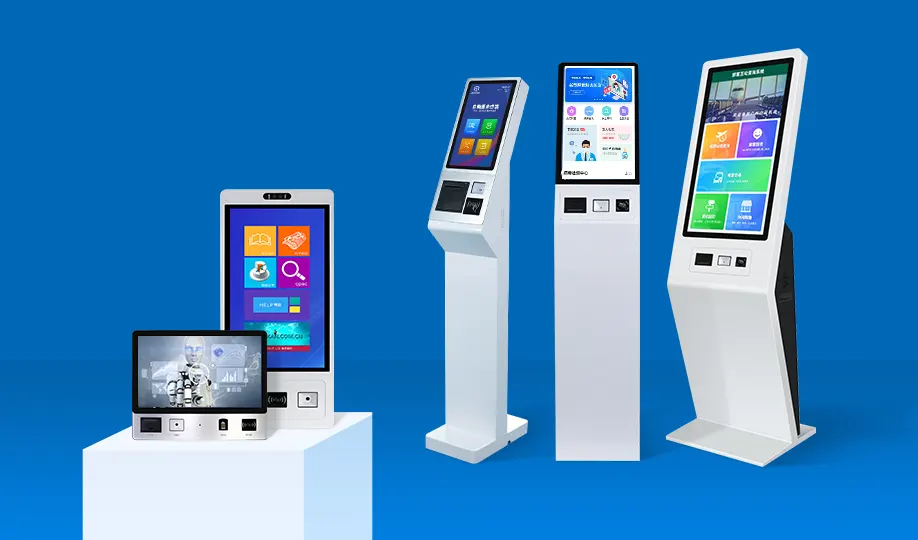
Interactive touch screen kiosks are self-contained computer terminals equipped with a touch-sensitive display that allows users to interact and access information or services easily. These kiosks typically feature a high-resolution screen, durable construction, and advanced touch technology that enables intuitive navigation. Key features may include multi-touch capabilities, gesture recognition, and even integration with other technologies such as voice control or biometric authentication. By leveraging these features, interactive touchscreen kiosks provide a user-friendly interface that enhances the overall experience.
If you want to know more about the kiosk meaning, welcome further to read our expert introduction to What Is Self-Service Kiosk? If you want to know more about the types of kiosks, browse our complete guide about 7 Popular Types of Kiosks.
Benefits of Interactive Touch Screen Kiosks
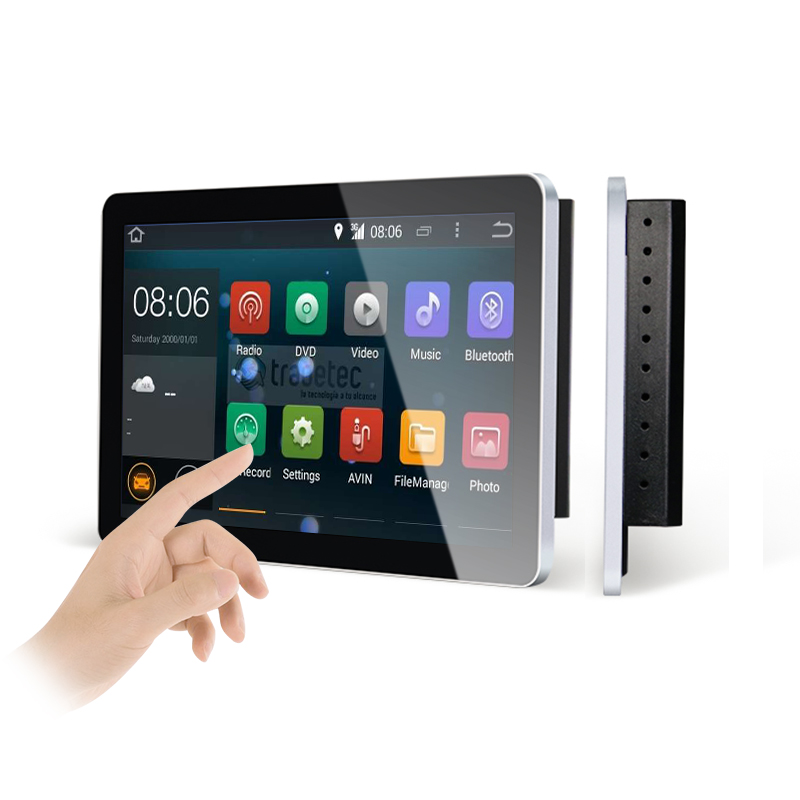
Enhancing customer engagement and interaction
One of the primary benefits of interactive touchscreen kiosks is their ability to engage customers in a meaningful way. By offering an interactive interface, these kiosks captivate users, sparking curiosity and encouraging further exploration. Whether it’s in a retail environment, educational institution, or healthcare facility, interactive touchscreen kiosks provide an immersive experience that keeps customers actively involved, leading to increased customer satisfaction, brand loyalty, and revenue generation.
Increasing operational efficiency and cost-saving opportunities
Interactive touchscreen kiosks also play a pivotal role in streamlining business operations and reducing costs. By automating tasks that were previously performed by staff members, these kiosks optimize operational efficiency and free up valuable human resources. For instance, in the retail sector, self-checkout kiosks enable customers to complete transactions themselves, eliminating the need for additional cashiers. This not only expedites the process but also reduces labor costs for the business.
Streamlining processes and reducing wait times
Interactive touchscreen kiosks have proven to be a game-changer when it comes to streamlining processes and reducing wait times. In various industries such as transportation, hospitality, and healthcare, these kiosks facilitate self-service options, enabling customers to perform tasks like check-in, appointment scheduling, or ticketing without the need for human assistance. This not only improves efficiency but also enhances the overall experience by minimizing waiting times and empowering customers to take control of their own interactions.
Interactive Touch Screen Kiosk Types for Diverse Industry

Revolutionizing Retail Experiences
The retail industry has experienced a significant transformation with the integration of interactive touchscreen kiosks. These kiosks have revolutionized the traditional shopping experience by providing customers with a personalized and interactive journey. With the ability to showcase an extended product catalog and provide real-time updates, interactive touchscreen kiosks empower customers to explore and interact with products in a virtual environment. Furthermore, they enable personalized product recommendations and virtual try-ons, allowing customers to make informed purchasing decisions and enhancing their overall satisfaction.

Enhancing Education and Training
Interactive touchscreen kiosks have found a valuable place in educational institutions, facilitating interactive learning experiences and providing access to a wealth of information. These kiosks can be utilized in classrooms, libraries, or information hubs to offer interactive modules that cater to diverse learning styles. Additionally, interactive touchscreen kiosks serve as a valuable tool for professional development, offering training modules and interactive simulations that enhance learning outcomes and enable individuals to acquire new skills in an engaging manner.
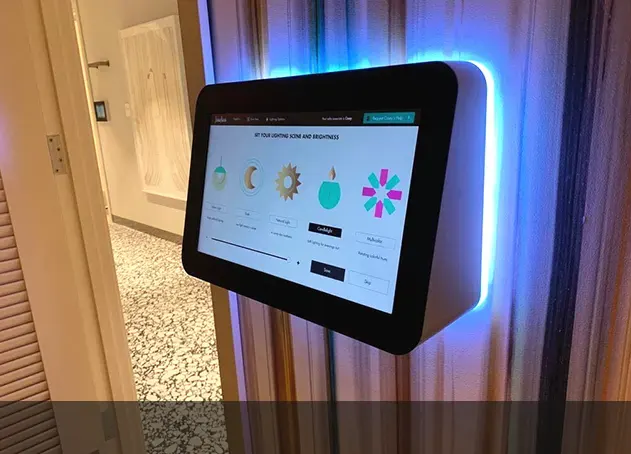
Interactive Touch Screen Kiosks in Hospitality and Tourism
Hospitality and tourism industries have embraced the power of interactive touchscreen kiosks to elevate guest experiences and streamline operations. With self-check-in and wayfinding modules, hotels can provide a seamless check-in process and ensure guests can easily navigate their establishments. Virtual concierge services and interactive city guides enable tourists to access information about local attractions, dining options, and events, enhancing their overall experience. Moreover, interactive kiosks streamline hotel operations by facilitating online bookings and providing real-time updates on room availability.
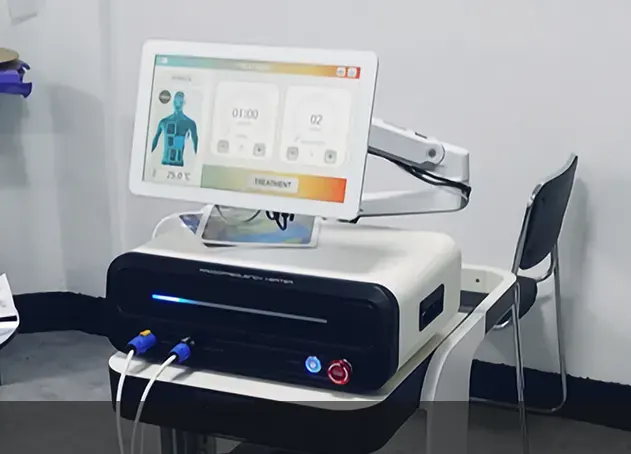
Interactive Kiosks in Healthcare
Interactive touchscreen kiosks have transformed the healthcare industry by enhancing patient experiences and empowering self-service options. These kiosks allow patients to access their medical records, schedule appointments, and even check-in for their appointments. Additionally, interactive health education modules provide patients with valuable information about various medical conditions and treatments, improving health literacy and enabling them to make informed decisions. Furthermore, interactive touchscreen kiosks can be used for monitoring vital signs and collecting patient feedback, thus improving overall healthcare delivery.

Integration of Interactive Kiosks in Transportation
Interactive touchscreen kiosks have reshaped the transportation industry, offering convenience and efficiency to passengers. For airlines and railways, these kiosks provide self-service check-in solutions and streamline the ticketing process. Real-time travel information, maps, and directions are easily accessible, ensuring passengers have up-to-date information about their journeys. Moreover, interactive touchscreen kiosks enhance passenger experiences in airports and train stations by providing engaging content, promotional offers, and entertainment options.
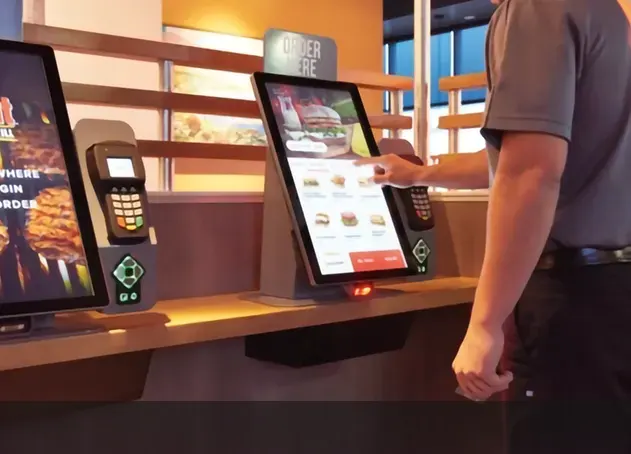
Revolutionizing the Food Service Industry
Interactive touchscreen kiosks have revolutionized the food service industry by offering self-ordering kiosks and customizable menu options. Customers can browse through the menu, customize their orders, and make payments at their convenience. This not only reduces wait times but also improves order accuracy, enhancing customer satisfaction. Moreover, interactive touchscreen kiosks can be seamlessly integrated with loyalty programs, allowing businesses to gather customer data and offer targeted promotions. Customer feedback can also be easily collected, enabling businesses to continuously improve their offerings.
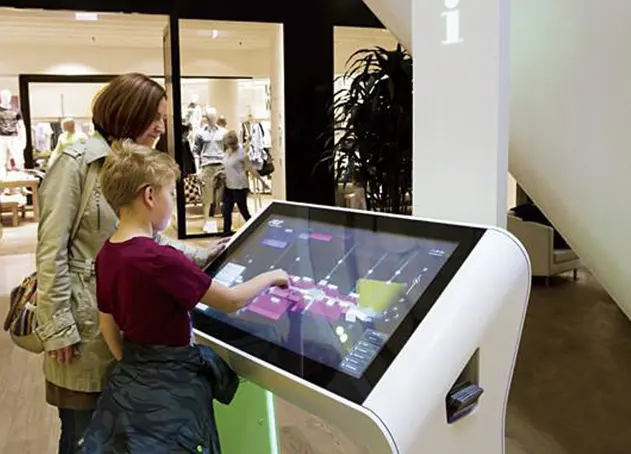
Interactive Kiosks for Events and Exhibitions
Events and exhibitions have embraced the power of interactive touchscreen kiosks to engage attendees and provide a memorable experience. These kiosks serve as information hubs, offering interactive displays that provide visitors with detailed information about exhibits, speakers, and schedules. By collecting visitor data, these kiosks facilitate lead generation, enabling event organizers to gain insights and tailor their offerings to attendee preferences. Interactive games and social media integration further enhance the overall event experience, fostering engagement and interaction.
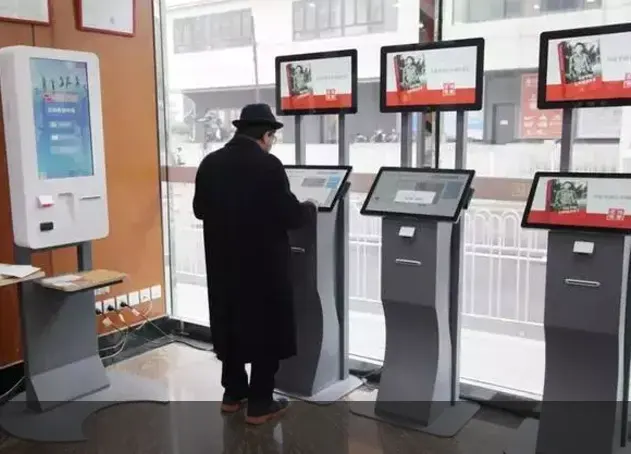
Interactive Kiosks in Banking and Financial Services
Interactive touchscreen kiosks have disrupted the banking and financial services sector, enabling self-service transactions and account management. Customers can deposit or withdraw funds, transfer money, or perform other banking activities without the need for physical tellers. Personalized financial advice and investment tools can also be accessed, empowering customers to make informed financial decisions. Additionally, interactive touchscreen kiosks enhance security measures, using advanced authentication methods to prevent fraud and safeguard customer information.
Interactive Touch Screen Kiosks in Museums and Cultural Institutions:
Museums and cultural institutions have leveraged interactive touchscreen kiosks to create immersive and engaging experiences for visitors. These kiosks offer interactive exhibits that provide visitors with additional information and multimedia content, enriching their understanding of the exhibits. Virtual tours enable visitors to explore museums and cultural sites from the comfort of their homes, making art and history accessible to a wider audience. Multilingual content and accessibility features ensure that these experiences are inclusive and cater to diverse visitor needs.
Future Trends and Innovations
Looking ahead, interactive touchscreen kiosks are poised for continued advancements and innovations. Touch screen technology will continue to evolve, with the introduction of flexible and transparent displays that enable new form factors and designs. Integration with artificial intelligence and voice recognition will further enhance the user experience, allowing for more intuitive interaction and personalized recommendations. With the potential applications in emerging industries, such as smart cities and the Internet of Things (IoT), interactive touchscreen kiosks will continue to play a crucial role in shaping the future of technology.
Conclusion
The wide-ranging applications of interactive touchscreen kiosks have transformed the way businesses operate and interact with their customers. As we look to the future, the advancements in technology and the integration of artificial intelligence hold immense potential for these kiosks, promising even more exciting and innovative applications. Interactive touchscreen kiosks are undoubtedly a powerful tool that continues to shape the digital revolution, offering limitless possibilities for businesses and users alike.

